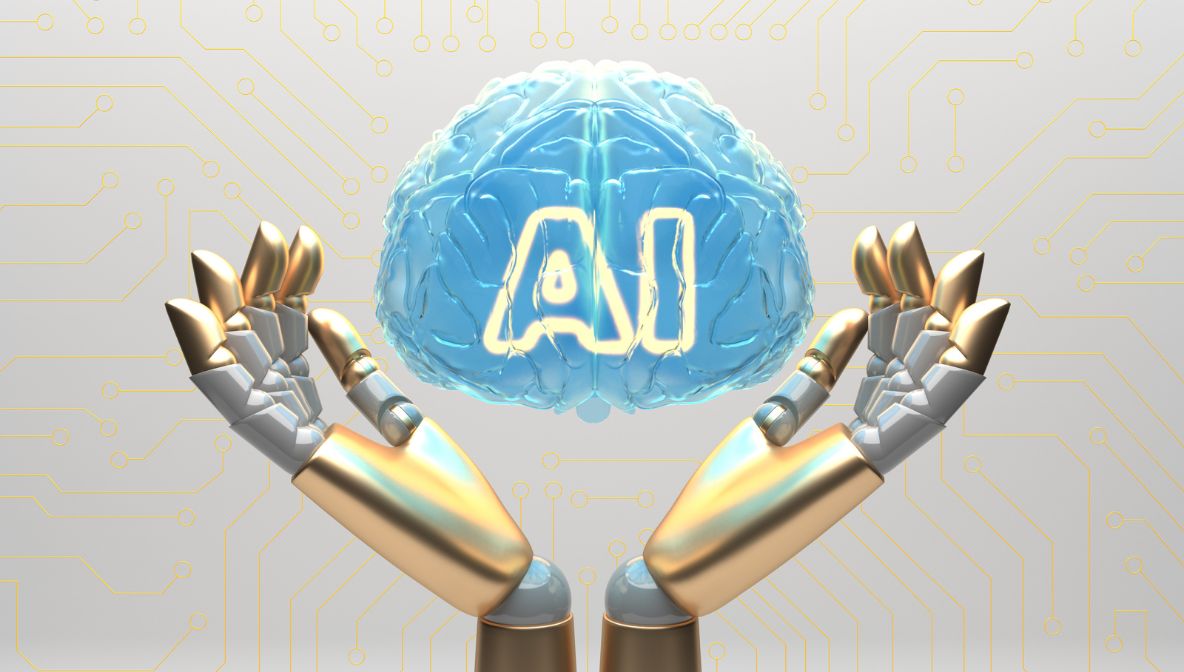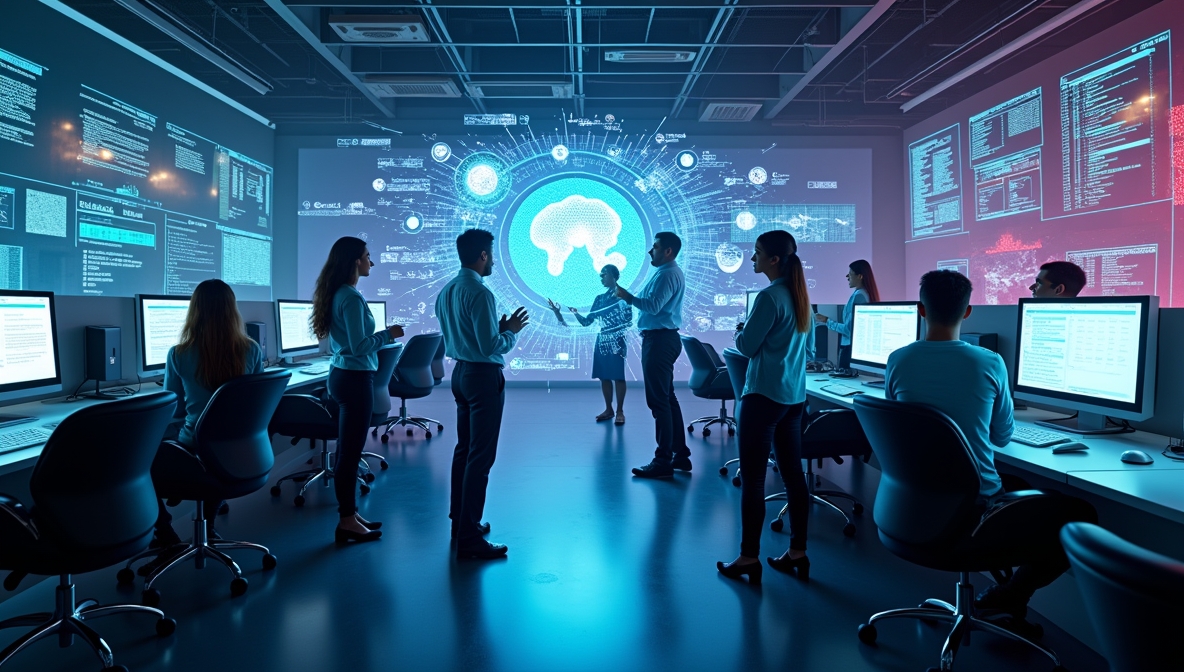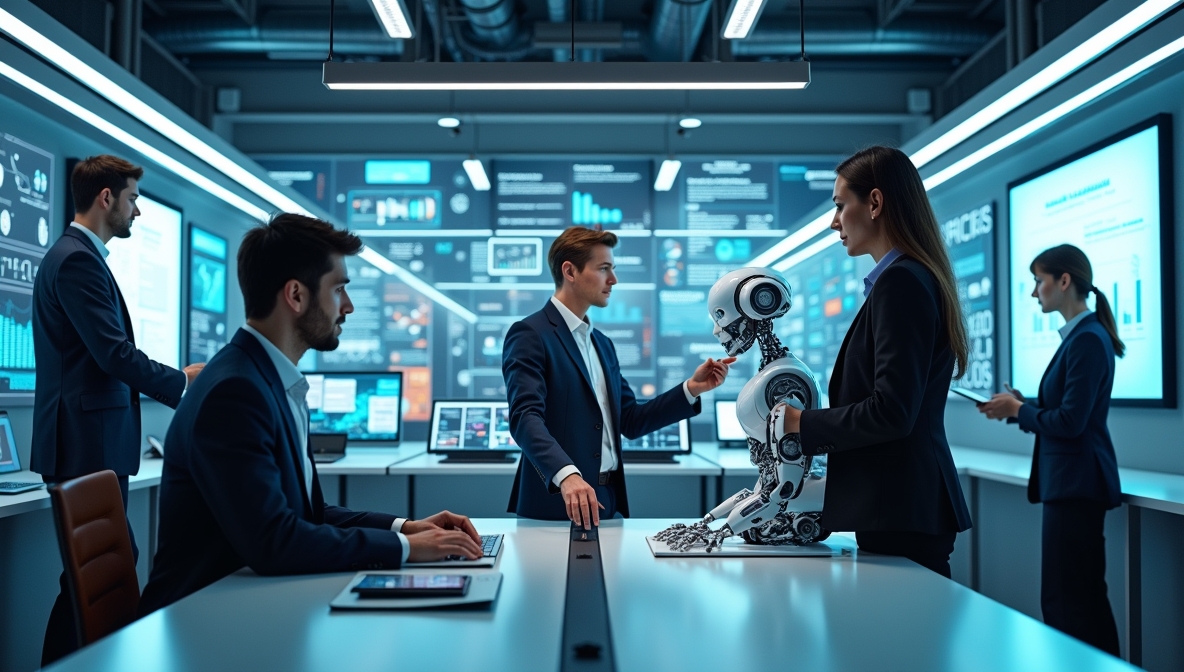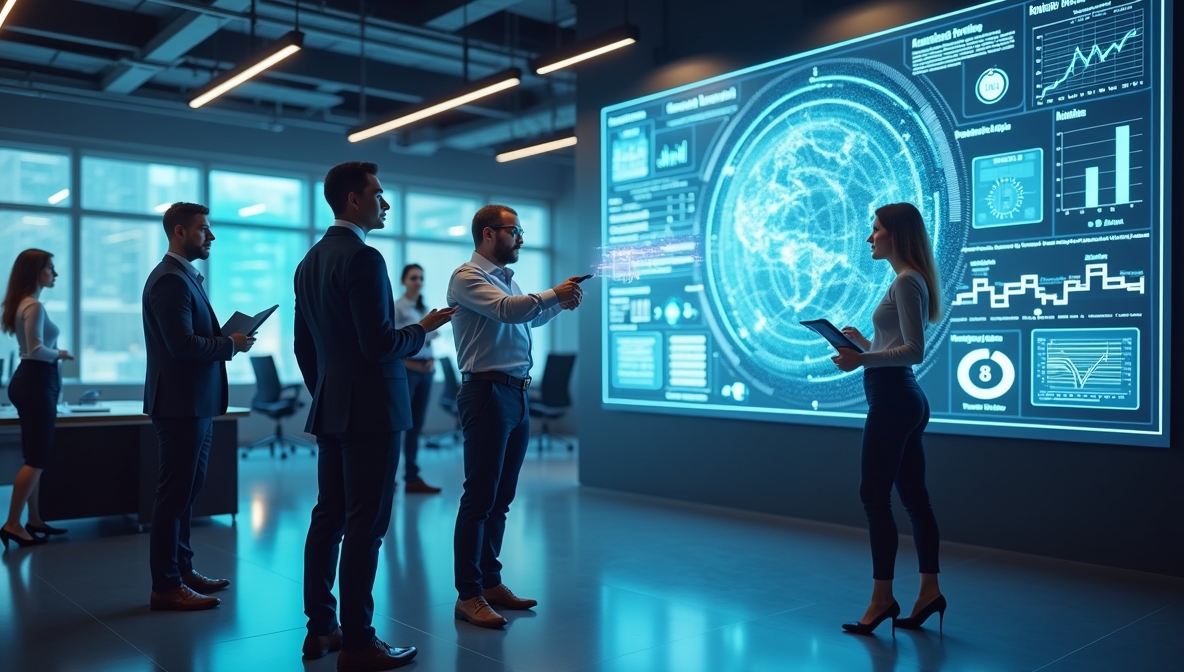The rapid advancement of artificial intelligence (AI) is changing the world at an unprecedented pace. In 2025, AI will play a crucial role across multiple industries, from healthcare to business automation. These changes are not just limited to creating smart solutions but are driving efficiency, productivity, and innovation in ways previously unimaginable. As we look ahead, it is essential to explore AI trends 2025 that are expected to shape the future of technology and how businesses and individuals will interact with these changes.
Key Points:
- AI is increasingly being integrated into business applications and workflows.
- Automation, powered by AI, is making operations faster and more efficient.
- Machine learning and deep learning will continue to push the boundaries of data analysis and prediction.
What Are the Key AI Trends to Watch in 2025?
AI will undoubtedly continue to evolve at a rapid pace, but which trends should you watch out for in 2025? Here are some key AI trends 2025 to keep in mind:
1. Automation Across Industries
In 2025, businesses will rely more on AI and automation to streamline processes. From marketing to finance, AI will enhance productivity by automating repetitive tasks and enabling more accurate decision-making. Machine learning algorithms will become increasingly adept at predicting consumer behavior, helping businesses optimize their strategies. One of the most significant advantages of automation is the reduction in human error and operational costs.
Example:
Retailers, for instance, will use AI to manage inventory, forecast demand, and personalize customer experiences. AI-powered chatbots will handle customer inquiries, making customer service more efficient.
2. AI for Business Applications
AI will also be deeply integrated into business applications, transforming how companies interact with their data. From enterprise resource planning (ERP) systems to customer relationship management (CRM) tools, AI will make systems smarter. It will help businesses predict trends, manage resources, and automate marketing strategies.
Example:
Sales teams can use AI-powered CRMs to identify leads, automate emails, and predict which leads are most likely to convert. Similarly, financial institutions will use AI to assess risk, streamline underwriting processes, and even detect fraud.
3. Deep Learning Technology
One of the standout AI trends 2025 is the growth of deep learning technology, an advanced subset of machine learning. Deep learning will revolutionize industries by enhancing systems with better pattern recognition capabilities. This will be particularly important for industries relying on large data sets, such as healthcare and autonomous vehicles.
Example:
Healthcare professionals will use deep learning algorithms to analyze medical images, allowing them to detect diseases earlier and more accurately. Deep learning will also be crucial in self-driving car technologies, improving their ability to make real-time decisions.
How Will AI Transform Healthcare in 2025?
Machine learning in healthcare is a rapidly growing field, and 2025 will see major advancements. AI will be used for diagnosing diseases, predicting outcomes, and improving patient care. With better data analysis tools and more accurate predictions, healthcare providers will be able to offer more personalized treatment plans. AI’s ability to process vast amounts of data quickly and accurately will also improve drug discovery and clinical trials.
Example:
AI-powered tools will assist doctors by analyzing patient data, providing suggestions for treatment based on a patient’s history, genetic information, and lifestyle factors.
What Role Will AI Play in Business Automation by 2025?
AI and automation will play an even larger role in business operations by 2025. From customer service to supply chain management, AI will allow businesses to reduce human error and increase speed and efficiency. The introduction of more advanced algorithms will result in businesses being able to perform more complex tasks automatically, reducing costs while improving accuracy.
Example:
In customer service, chatbots and virtual assistants will handle more sophisticated queries. AI will predict customer needs and suggest personalized solutions in real time, creating a seamless experience for the consumer.
Will AI Change the Workforce in 2025?
The integration of AI and automation will undoubtedly change the workforce landscape. While some jobs will be replaced by AI-powered systems, new job categories will emerge, requiring different skill sets. In 2025, the workforce will see a rise in demand for professionals skilled in AI, machine learning, and data analysis.
Example:
Workers who once performed manual tasks will now focus on higher-level responsibilities, such as overseeing AI systems, interpreting data results, and ensuring that the algorithms are ethically used.
Conclusion
AI trends 2025 promise a wide array of advancements across many industries. AI for business applications, machine learning, and deep learning technologies are all playing a vital role in driving automation and improving decision-making. Whether it’s enhancing healthcare outcomes or improving business operations, AI is set to revolutionize the way we live and work. Businesses that adapt to these changes will gain a competitive edge, while individuals with the right skills will be positioned for success in this evolving job market. Understanding and embracing AI trends 2025 will be key to thriving in the future.
FAQ’s
-
What are the top AI trends to watch in 2025?
Key trends include the increased use of AI for business applications, advancements in deep learning, and AI-driven automation across various industries. -
How will AI impact healthcare in 2025?
AI will transform healthcare by enabling earlier diagnoses, personalized treatments, and more efficient drug discovery and clinical trials. -
What is the role of AI in business automation?
AI will automate routine tasks, reduce human error, improve efficiency, and provide valuable insights to improve decision-making processes. -
How will AI change the job market in 2025?
AI will create new job opportunities in fields such as data science and AI system management while eliminating some repetitive tasks. -
What is the difference between machine learning and deep learning in AI?
Machine learning refers to algorithms that learn from data, while deep learning, a subset of machine learning, uses neural networks to analyze more complex data.
AI Applications in Different Industries (2025)
| Industry | AI Application | Key Benefit |
|---|---|---|
| Healthcare | Predictive Analytics, Diagnostic Assistance | Improved patient care, faster diagnosis |
| Retail | Personalized Shopping, Chatbots | Enhanced customer experience, automation |
| Finance | Fraud Detection, Algorithmic Trading | Reduced fraud risk, optimized trading |
| Manufacturing | Predictive Maintenance, Robotics | Reduced downtime, increased efficiency |
| Transportation | Autonomous Vehicles, Route Optimization | Safer travel, fuel-efficient routes |
| Education | Personalized Learning, Smart Classrooms | Custom learning experiences, engagement |
| Agriculture | Crop Monitoring, Smart Irrigation Systems | Increased crop yield, optimized water use |
| Customer Service | AI Chatbots, Virtual Assistants | 24/7 support, reduced wait time |
Comparison of AI Algorithms (2025)
| Algorithm Type | Key Characteristics | Common Use Case | Strengths | Limitations |
|---|---|---|---|---|
| Supervised Learning | Requires labeled data for training | Image recognition, fraud detection | High accuracy with labeled data | Needs large labeled datasets |
| Unsupervised Learning | Learns from unlabeled data | Customer segmentation, anomaly detection | Finds hidden patterns in data | Can struggle with high-dimensional data |
| Reinforcement Learning | Learns through trial and error | Robotics, gaming, self-driving cars | Optimizes actions based on rewards | Requires lots of time for training |
| Deep Learning | Uses neural networks with many layers | Speech recognition, autonomous driving | Great for large data sets and complex tasks | Requires high computational power |
| Natural Language Processing (NLP) | Processes and interprets human language | Chatbots, sentiment analysis, translation | Can understand and generate human language | Can misinterpret context or nuances |
Reminder Notes:
- AI is rapidly advancing, and staying updated with the latest trends will be crucial for businesses to remain competitive.
- Investing in AI training and tools will help organizations leverage automation for greater productivity.




